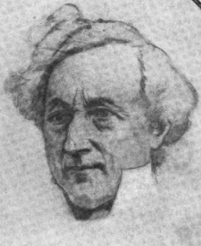John Young (pioneer) facts for kids
Quick facts for kids
John Young
|
|
|---|---|

John Young
|
|
| Born | March 8, 1764 |
| Died | 1825 (aged 60–61) |
| Nationality | American |
| Occupation | surveyor |
| Known for | Founder of Youngstown, Ohio |
John Young (born March 8, 1764 – died 1825) was an American surveyor and pioneer. A surveyor is someone who measures land and draws maps. A pioneer is one of the first people to explore and settle a new area. John Young is best known for founding Youngstown, Ohio. This town later grew into a major center for making steel.
Contents
Early Life and Moving West
John Young was born in Peterborough, New Hampshire. He later moved to Whitestown, New York. In Whitestown, he married Mary Stone White. Her father, Hugh White, was the founder of that town.
In 1796, John Young, his wife, and their son, John Jr., traveled to what is now Ohio. John Young was working as a surveyor in this new territory. He soon decided to settle there.
Finding and Buying Land in Ohio
Also in 1796, John Young and other surveyors visited the future site of Youngstown, Ohio. Young thought this area would be a good place to buy land.
On February 9, 1797, he bought the entire township. This land was about 15,560 acres (63 square kilometers). He bought it from the Western Reserve Land Company. The official paperwork for the land was completed on April 9, 1800. The founding of the town was officially recorded on August 19, 1802. John Young lived in the area from 1799 to 1803.
Return to New York and Later Years
While living in Ohio, the Young family had another son named George. However, they eventually moved back to Whitestown, New York, in 1803. They returned because of Mary Young's health.
John Young passed away in Whitestown in 1825.
John Young's Children
John and Mary Young had three sons. Their first son was John Young Jr. (1794-1875). He later became a Commodore in the United States Navy. Their second son was William Clark Young (1799-1893). He became a Colonel and surveyor in the United States Army. Their youngest son was George Young (1796-1828).
 | Janet Taylor Pickett |
 | Synthia Saint James |
 | Howardena Pindell |
 | Faith Ringgold |

